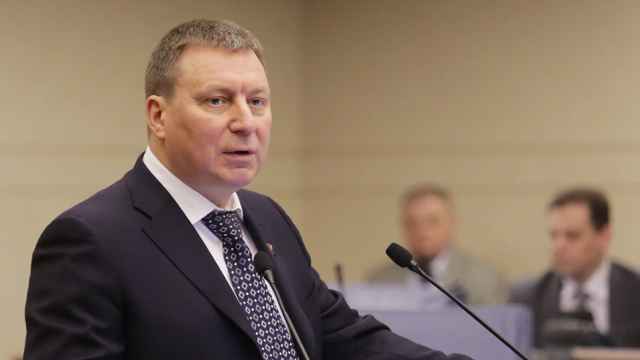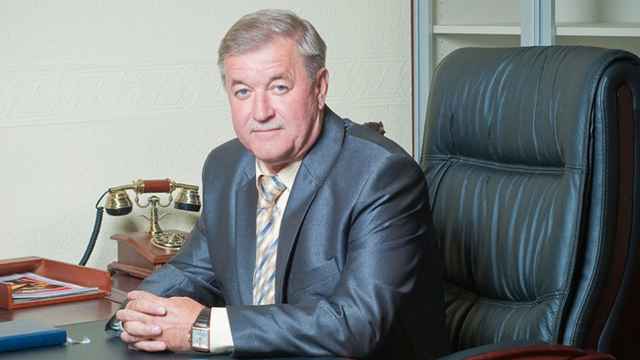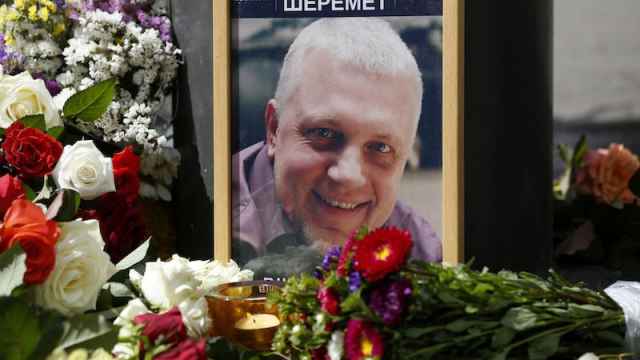Three years before the Russian Revolutions of 1917, the young Russian poet Vladimir Mayakovsky wrote the following lines in his “A Cloud in Trousers” poem:
"The tongueless street merely squirms and coils —
It has nothing to yell or even speak with."
What he meant was that a huge number of people in Tsarist Russia, including the common people, had simply not been written about before. The “street” remained “tongueless,” evidently before Mayakovsky’s arrival.
In a clear historical parallel, we are now witnessing the same situation in 21st century Russia.
The problem is not that “elections,” “parliament” and “courts” have different meanings in Russia than, say, in the United States or Great Britain.
The problem is that definitions for most institutions, from schools to jails, have not yet even been given in Russia. Yes, there are a few opposition activists in and outside Russia who say things as they are. They call corrupt bureaucrats “thieves and crooks,” brutal riot police “fascists” and dependent courts “telephone justice.”
But among "ordinary Russians," the default position is that while everyone understands the realities, very few are able to express them in actual words.
This semantic gap means that people working for the Russian government, or who are somehow related to it, can turn into real heroes overnight simply by speaking the truth.
Let us examine two recent cases from Buryatia, a remote Siberian republic where alleged election fraud has sparked widespread protests.
First, there was Anna Zueva, an anchor at a local state-owned television channel. Not only did she resign when she was told not to report on the protests, but she went on to launch her own YouTube channel where she highlighted police brutality against peaceful protesters.
Now she is being interviewed or at least written about by practically every independent media platform in Russia, and her videos are getting up to half a million views on YouTube.
All she did was clearly name things as they are: Election fraud, censorship and police brutality. Somehow, when this came from a local star, rather than an opposition activist, it had a magical effect.
Analyzing what happened to Zueva, I speculated on my social media page that we will soon see a proliferation of the “Zueva Effect,” in which riot policemen will call brutality “brutality,” judges will call injustice “injustice,” and election officials will call fraud “fraud.”
Many commenters mocked me as a dreamer, however, life has already proven me right.
Just a few days after Zueva was fired, another people’s hero emerged in Buryatia. Viktor Kharzhayev, a member of the National Guard (a security force in charge of suppressing protests), addressed his colleagues in a video, telling them that they had the right to not follow “criminal orders.”
Once again, he became the subject of national attention within hours. The most popular comments under his video said: “I never thought I’d like what a guy from the National Guard would say,” “A real man” and “Real hero.” Someone even called for him to become the head of police nationwide.
This is a really fascinating phenomenon. As long as most life in Russia remains “tongueless,” a few simple words of truth is all it takes to become a hero.
A Message from The Moscow Times:
Dear readers,
We are facing unprecedented challenges. Russia's Prosecutor General's Office has designated The Moscow Times as an "undesirable" organization, criminalizing our work and putting our staff at risk of prosecution. This follows our earlier unjust labeling as a "foreign agent."
These actions are direct attempts to silence independent journalism in Russia. The authorities claim our work "discredits the decisions of the Russian leadership." We see things differently: we strive to provide accurate, unbiased reporting on Russia.
We, the journalists of The Moscow Times, refuse to be silenced. But to continue our work, we need your help.
Your support, no matter how small, makes a world of difference. If you can, please support us monthly starting from just $2. It's quick to set up, and every contribution makes a significant impact.
By supporting The Moscow Times, you're defending open, independent journalism in the face of repression. Thank you for standing with us.
Remind me later.








